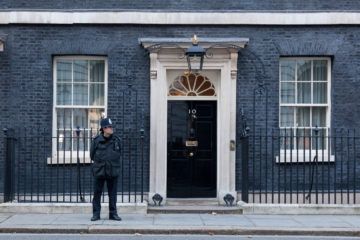London high street tenants are paying above average rent prices, says Spotahome
Tenants are paying above the average rent price for London to live closer to a high street, research from Spotahome reveals.
Spotahome looked at each London borough based on the high street population as a percentage of total population.
The research shows that in all nine boroughs where more than 50% of the population is located on or near the high street, people pay above the London average rent of £1,644.
As an example, 82% of renters in the City of London are living on or near a high street, paying an average monthly rent of £2,274.
Spotahome has pointed out that a shift in priorities could occur due to COVID-19, leading to higher demand and higher rents in areas with more green spaces instead.
However, all London boroughs with less than 34% of its population living on the high street have an average rent price less than London’s overall average of £1,644.
UK and Ireland Country Manager of Spotahome, Nadia Butt, commented: “While it’s understandable that people pay more to be near amenities like tube stations, bars and restaurants, this trend may be shifting.
“After spending months inside, many tenants are prioritising green spaces over the busy high street, especially as they look to avoid being exposed to the virus in the event of a potential second wave.
“Therefore, we may see a rebalancing of the cost of renting, as demand shifts from the high street to parks and greenery, with these currently more affordable boroughs climbing in cost as a result.”
| Borough | High street population as a share of total local authority population (%) | Average rent pm |
| City of London | 81.8 | £2,274 |
| Kensington and Chelsea | 71.4 | £3,023 |
| Westminster | 67.3 | £3,046 |
| Hammersmith and Fulham | 64.9 | £2,117 |
| Camden | 63.1 | £2,302 |
| Islington | 56.9 | £2,003 |
| Haringey | 53.2 | £1,669 |
| Hackney | 51.5 | £1,842 |
| Wandsworth | 50.0 | £1,958 |
| Waltham Forest | 49.7 | £1,352 |
| Newham | 49.5 | £1,453 |
| Southwark | 47.2 | £1,718 |
| Tower Hamlets | 39.5 | £1,835 |
| Brent | 37.8 | £1,502 |
| Richmond upon Thames | 34.2 | £1,835 |
| Ealing | 33.5 | £1,569 |
| Merton | 32.9 | £1,640 |
| Redbridge | 32.4 | £1,311 |
| Lewisham | 32.2 | £1,316 |
| Barking and Dagenham | 31.9 | £1,208 |
| Barnet | 30.4 | £1,499 |
| Lambeth | 30.4 | £1,908 |
| Enfield | 29.9 | £1,292 |
| Harrow | 29.1 | £1,387 |
| Kingston upon Thames | 28.3 | £1,306 |
| Croydon | 28.1 | £1,140 |
| Hounslow | 25.4 | £1,352 |
| Greenwich | 24.8 | £1,476 |
| Sutton | 24.3 | £1,151 |
| Bromley | 23.3 | £1,307 |
| Havering | 22.9 | £1,169 |
| Bexley | 20.2 | £1,092 |
| Hillingdon | 19.0 | £1,200 |
| London | £1,644 |





